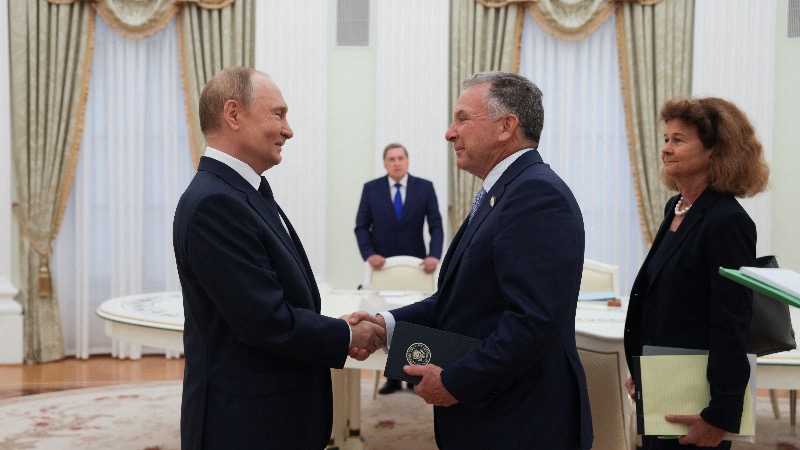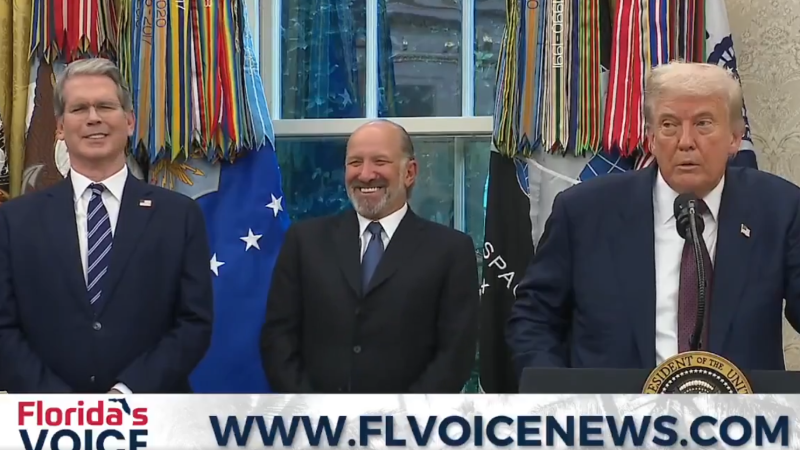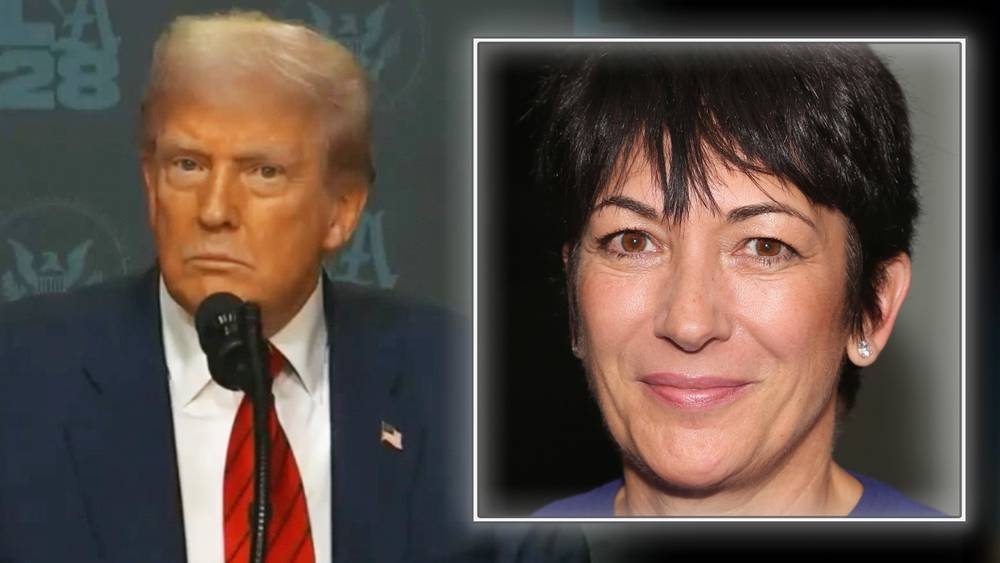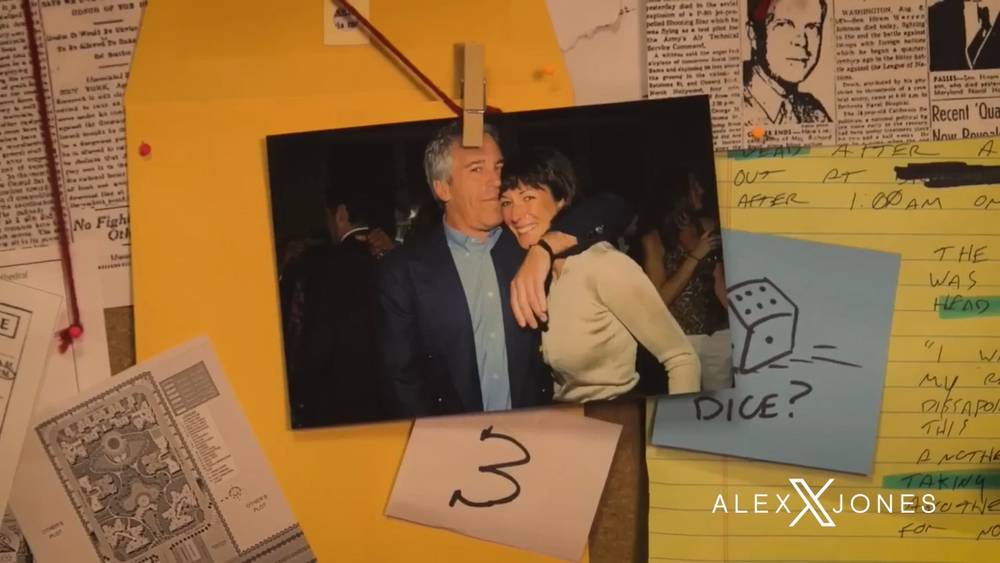 Image Credit: GAVRIIL GRIGOROV / Contributor / Getty
Image Credit: GAVRIIL GRIGOROV / Contributor / Getty On Wednesday President Donald Trump’s special envoy Steve Witkoff met with Russian President Vladimir Putin in hopes of attaining a ceasefire in the Ukraine war. While Trump said that great progress was made during the roughly three-hour meeting, soon thereafter he doubled tariffs on India to 50 percent for its purchases of Russian oil. While the Ukraine war may have been a factor as some media outlets have claimed, BRICS trading partners and the dollar as the world’s reserve currency may have also been a factor.
The President posted a comment about the meeting after his envoy met the Russian leader:
My Special Envoy, Steve Witkoff, just had a highly productive meeting with Russian President Vladimir Putin. Great progress was made! Afterwards, I updated some of our European Allies. Everyone agrees this War must come to a close, and we will work towards that in the days and weeks to come. Thank you for your attention to this matter!

According to Kremlin foreign policy aide Yuri Ushakov, the two discussed the possibility of developing “strategic cooperation” between Moscow and Washington, although little is known as to the details of what this would entail.
“Some signals were transmitted on the Ukrainian issue [by Putin]” and “corresponding signals were also received from President Trump,” Ushakov told journalists.
Putin’s economic envoy Kirill Dmitriev (who met with Witkoff Wednesday morning, prior to the Putin meeting) said that the diplomatic dialogue will prevail and thanked the American for the meeting. The Russian economic envoy’s statement is notable due to the looming secondary tariffs.
Thank you all for your kind wishes for a successful visit of @SteveWitkoff to Moscow. 🇷🇺🇺🇸🕊️
— Kirill A. Dmitriev (@kadmitriev) August 6, 2025
Dialogue will prevail. 🤝
Notably, Wednesday’s meeting comes just two days before Trump’s ‘secondary tariffs‘ will take effect, a form of punishment the White House is set to apply on the Kremlin for not bringing an end to the war.
Trump announced on July 14 that he will levy a 100 percent tariff on Russia if it fails to make a peace deal with Ukraine within 50 days.
“We’re very, very unhappy with them, and we’re going to be doing very severe tariffs, if you don’t have a deal in 50 days, tariffs at about 100 percent, they call them secondary tariffs,” The President said July 14.
Trump is disappointed with Putin because he wanted him to make a peace deal months ago. He said thought he had a deal with Russia on the Ukraine war “about four times. And here we are still talking.”
According Trump, Wednesday’s meeting could have potentially affected the sanctions on India for its Russian oil purchases.
“Mr. Trump had said on Tuesday that depending on the results of Mr. Witkoff’s meeting, the United States could impose new sanctions on Russia and countries that buy its fossil fuels,” The New York Times said.
The President reached out to Ukraine’s Dictator Vladimir Zelensky to speak about the developments in Moscow, to which Zelensky posted:
Right on my way from our brigades here in Sumy region, I spoke with President Trump. This conversation happened after President Trump’s representative, Steve Witkoff, visited Moscow. Our joint position with our partners is absolutely clear – the war must end. And it must be done honestly. European leaders were on the call, and I am grateful to each of them for their support. We discussed what was spelled out in Moscow. Ukraine will definitely defend its independence. We all need a lasting and reliable peace. Russia must end the war that it itself started. Thank you to everyone who stands with Ukraine.
Right on my way from our brigades here in Sumy region, I spoke with President Trump. This conversation happened after President Trump's representative, Steve Witkoff, visited Moscow.
— Volodymyr Zelenskyy / Володимир Зеленський (@ZelenskyyUa) August 6, 2025
Our joint position with our partners is absolutely clear – the war must end. And it must be done… pic.twitter.com/NOxZPAdSr2
Economics appeared to be the main topic of discussion Wednesday, even exceeding the topic of the war itself. The New York Times detailed Russia’s economic situation:
Energy exports are the main source of revenue for the Russian government, though those earnings have declined as the price of Russian oil has fallen. The Russian government collected about $9.8 billion in oil and gas taxes in July, Russia’s Finance Ministry said Tuesday, a 27 percent drop from a year earlier when measured in Russian currency.



